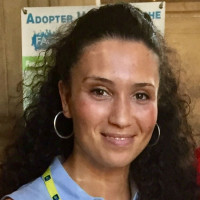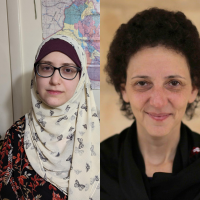
Why the local also matters this Ramadan
It has felt relentless because it has been. This blessed month of mercy serves as a relief for many of us because we are able to step back and reflect on all that we are grateful for as bestowed upon us by Allah.
Sometimes, the tendency is to look into the distance. We focus on the fact that living in the West puts us at an advantage, and participate actively in charity fundraisers for those suffering from poverty and oppression in the Global South. While such actions are important, they can also lead us to ignore the issues within our own communities.
The biggest threat to UK Muslims today is Islamophobic and repressive laws that states justify under the guise of fighting terrorism. The charity Helping Households Under Great Stress (HHUGS) has long dealt with the consequences of these policies. This small collective has been supporting the most silenced amongst us since 2004.
Arrests have impacted over 2,700 families suspected of terrorism since 9/11 in the UK. Over half of those detained are released without charge. The state uses Terrorism Preventative Investigative Measures (T-PIMs) to severely restrict the rights of people who have not been charged with any criminal activity, through house arrests and the removal of their freedom of movement, communication, and association.
 |
Celeste explains that, to her, they are part of the 'forgotten people' |  |
The families of those concerned often witness the arrest, watching helplessly as officers burst in and rifle through belongings, left to face the uncertainty of the situation alone. They do not know if their loved one will return, and if they do, it is often unclear whether the nightmare is over. T-PIMS, state-sanctioned limbo, is an added form of torture. Moreover, fearing further repression, families often face these trials alone, as others in the community stay away, terrified of being seen as guilty by association.
This is the very reason that the support for these families is so crucial.
HHUGS shares filmed accounts of the targets of these state practices, which are painful to watch. The story of Barbar Ahmed is a familiar one, yet listening to the details of everything he faced is a striking reminder of what the war on terror has meant for its victims. Ahmed not only faced a violent arrest, during which he was abused physically, sexually, and verbally, sustaining 73 injuries, but he went on to serve over a decade in prison without trial.
Twitter Post
|
After eight years in UK prisons, five of which were spent in solitary confinement, he was extradited to the US where he spent two years in a supermax prison - again in total isolation. The mental strain of knowing that his family was suffering from the uncertainty of his return was even greater for him.
Read more: 'I am Mohammed Saleem' campaign calls on UK government to act on Islamophobia
Celeste explains that, to her, they are part of "the forgotten people." The state leaves thousands of families to face the violence of repression alone. The added stigma of being a raided household, or a suspect of the state - even if there are no charges pressed - makes circumstances even more unbearable. It means that many hestitate to offer help, even within families.
Opposition to institutionally racist counter-extremism policies, such as the Prevent strategy, must go beyond a general approach. While activists, unions, civil liberties groups, lawyers, teachers, and healthcare professionals built and sustained a wide coalition of opposition to Prevent and highlighted its detrimental effect on civil liberties across the board, there is a danger that this work fails to translate into supporting targeted individuals. These policies often serve to silence poor, Muslim, migrant, and BAME communities, which can easily make them invisible, disappearing in the background of the political moment.
 |
We would do well not to forget the hungry, the poor, and the oppressed in our midst |  |
If it was not for the support organised by HHUGS to help relieve the day-to-day hardship faced by these families, their conditions would be insufferable. The charity provides financial, emotional, and practical support, largely through a base of volunteers. These actions provide a lifeline for the hardest hit in the ongoing war on Muslims, carried out by the British state.
Charitable actions serve as a reminder that Muslims are not alone, that there are solutions to their problems, and that it is possible for them to fight back. To the rest of us, HUGGS shows that while the millions of pounds spent in charity every year by Muslims in the UK during the holy month is truly inspiring, we would do well not to forget the hungry, the poor, and the oppressed in our midst. This is, after all, our collective duty.
In the words of Celeste, "That's the meaning of Ummah for me, it's HHUGS. They give you hope, they support you like your own family. And they never give up on you."
Malia Bouattia is an activist, a former president of the National Union of Students, and co-founder of the Students not Suspects/Educators not Informants Network.
Follow her on Twitter: @MaliaBouattia
Have questions or comments? Email us at: editorial-english@alaraby.co.uk
Opinions expressed here are the author's own, and do not necessarily reflect those of her employer, or of The New Arab and its editorial board or staff.
![Dawn breaks over the London Central Mosque. [Getty] Dawn breaks over the London Central Mosque. [Getty]](/sites/default/files/styles/large_16_9/public/media/images/D7332D73-2AA3-4582-86FD-70BF37766F8E.jpg?h=d1cb525d&itok=RqnwUNaK)



